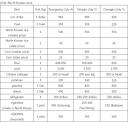According to the Choson Ilbo:
Despite increasing tensions between the two Koreas since the North sank the South Korean Navy corvette Cheonan in March, Pyongyang looks unlikely to close the joint Kaesong Industrial Complex, chiefly because it is a source of much-needed hard currency.
The salaries of some 40,000 North Korean workers there are not paid to them but to the regime, which keeps most of the money, making the industrial park a lifeline amid crippling international sanctions.
There have been fears that the North could take the South Koreans who work in Kaesong hostage, as it has already done once. “North Korea built the Kaesong Industrial Complex because it can earn cash and take a large number of people hostage if it wants,” said a former intelligence officer who defected to the South.
Kaesong has no other industry and is unsuited for farming because of military facilities, so if the industrial park is shut down, the 40,000 workers face starvation.
The monthly income of some US$4 million is no small sum. When the State Security Department picked the industrial park’s core manpower, it simply relocated Kaesong residents and brought in workers screened under strict standards from Pyongyang and other cities. Now they have got used to their positions, closure of the industrial estate could make them a headache for the North’s security forces.
A senior North Korean defector said the State Security Department “is now in trouble because the workers are now kindly disposed to the South Korean firms operating there.” Most of them are aware that they get only $2 or $3 out of every $60 their employers pay for each of them. Despite that, many North Korean workers are eager to go to the Kaesong complex, since most North Korean firms have stopped paying wages amid the economic malaise, but at Kaesong workers are at least still paid and they get perks that are worth even more.
Any North Korean workers who contact South Korean businesspeople or meet with them privately, however briefly, can be subject to security investigations or labeled political dissents. Hundreds are said to have already suffered this fate. “If the North shuts the industrial park first, the workers will get very restive,” said a defector from Pyongyang. Nor would it help the regime to take South Korean staff hostage as that would only expose its immorality and thus provoke even severer criticism, he added.
However, the North is building a huge industrial estate in the Rajin-Sonbong economic zone that could replace the Kaesong industrial park. A Korean Chinese businessman who recently visited Rajin said, “Hotels and industrial lots are under construction and roads are being widened, and the locals have either been driven out of the city or housed in temporary quarters.” But it is rare to meet foreigners there, he added. The North Korean authorities are wooing foreign investments through their overseas missions, but even Chinese businesspeople say it would be crazy to invest in North Korea now.
Attempts to attract Chinese tourists to make up for revenue lost from suspended South Korean group tourism to the Mt. Kumgang resort are also failing. The North is now inviting the Chinese veterans of the Korean War. But one Chinese tourist said visitors “are treated like criminals and not even allowed to take pictures.” A Chinese businessman commented, “North Korea is proposing to do something with China that it can’t even accomplish with South Koreans, but no one here believes it.”
Read the full story here:
Why N.Korea Won’t Shut the Kaesong Industrial Complex
Choson Ilbo
7/31/2010

